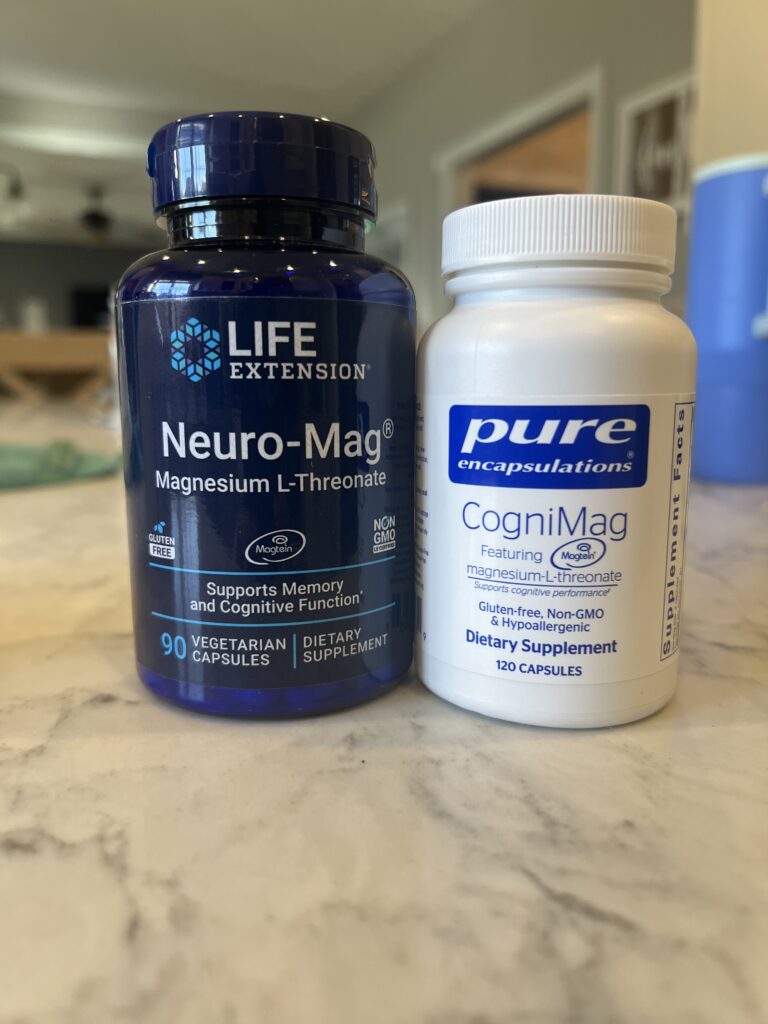Magnesium is a mineral powerhouse that often flies under the radar despite its impressive impact on our health. Known as the “relaxation mineral,” magnesium is essential for numerous body functions, including energy production, muscle relaxation, and nervous system support. In this post, let’s explore what magnesium does, the signs of deficiency, and the top health benefits of keeping your magnesium levels optimized.
Why Magnesium Matters
Magnesium plays a role in over 300 biochemical reactions in the body, meaning it’s a vital component of your overall health and well-being. Yet, despite its importance, it’s estimated that nearly 50% of Americans don’t get enough magnesium from their diets. Many factors, including processed foods, stress, and soil depletion, have made it harder to obtain adequate magnesium levels naturally.
Signs of Magnesium Deficiency
Symptoms of magnesium deficiency can be subtle and often mistaken for other issues. Some common signs include:
- Muscle cramps or spasms
- Insomnia or poor sleep quality
- Headaches or migraines
- Fatigue and low energy
- Anxiety or irritability
- Irregular heartbeats
Addressing magnesium deficiency through food and supplements may improve these symptoms and lead to better health.
Health Benefits of Magnesium
Let’s look at some of the powerful benefits that magnesium offers:
1. Improves Sleep Quality
Magnesium is known to have calming effects on the body and mind, which is essential for a restful night’s sleep. It helps regulate the hormone melatonin, which controls your sleep-wake cycles. Additionally, magnesium can help activate the parasympathetic nervous system, promoting relaxation and improved sleep. I noticed with taking Magnesium, especially after dinner and close to bedtime, I have felt more calm and relaxed leading to me falling asleep faster and staying asleep throughout the night. Obviously there are different factors for people when it comes to sleep, like too much caffeine before bedtime or too much screen time, but Magnesium definitely is a big changer in helping with sleep in our household
2. Supports Heart Health
This mineral helps maintain normal blood pressure, supports blood vessel relaxation, and prevents heart rhythm abnormalities. A healthy magnesium intake can significantly lower the risk of hypertension and cardiovascular disease.
3. Reduces Muscle Cramps and Soreness
Magnesium is key to muscle function and relaxation, which makes it popular among athletes for preventing cramps and muscle soreness. Supplementing with magnesium can ease aches and reduce post-exercise muscle cramps, helping muscles relax after strenuous activities. I had noticed a couple years ago with running I would get more soreness after a strenuous workout. The more I researched reasons why, I came upon the fact that I did not have enough Magnesium in my diet.
4. Eases Migraines and Headaches
Magnesium deficiency is often linked to migraines, and studies suggest that magnesium supplementation can reduce both the frequency and intensity of migraine attacks. Its role in calming nerve activity and regulating serotonin is crucial for people who suffer from chronic headaches and migraines. I have previously talked about Magnesium and its role in the treatment of my husband’s vestibular migraines. What a game changer it has been in reducing the migraine headaches leading to many more headache free days.
5. Boosts Mental Health and Eases Anxiety
Magnesium’s calming effects also support mental well-being. It plays a role in regulating neurotransmitters that influence mood, and studies show that supplementing with magnesium may reduce symptoms of anxiety and depression.
6. Supports Bone Health
While calcium often gets the spotlight for bone health, magnesium is equally essential. It helps convert vitamin D into its active form, which aids in calcium absorption. Proper magnesium levels are associated with better bone density and reduced risk of osteoporosis. As I am writing this, the days are getting shorter with decreased sunlight. In addition to Vitamin D supplements, it is important to be taking a Magnesium supplement so the Vitamin D and Calcium can be properly absorbed.
7. Promotes Healthy Blood Sugar Levels
Magnesium is involved in insulin regulation, making it beneficial for blood sugar control. Research shows that higher magnesium intake can reduce the risk of type 2 diabetes by improving insulin sensitivity.
How to Boost Your Magnesium Intake
Adding more magnesium to your diet can be simple and delicious. Here are some magnesium-rich foods to include:
- Leafy Greens: Spinach, kale, and Swiss chard
- Nuts and Seeds: Almonds, cashews, and pumpkin seeds
- Whole Grains: Quinoa, brown rice, and oats
- Legumes: Black beans, lentils, and chickpeas
- Dark Chocolate: A healthy treat that provides a magnesium boost
In cases of deficiency, supplements may also be helpful. It is recommended that you take 200-400 mg of Magnesium daily to get your recommended daily value. There are may different forms of Magnesium supplements that are available, with many being absorbed differently. The favorites that we turn to are Magnesium Glycinate and Magnesium L-Threonate, which are easily absorbable and are gentle on your stomach. You might also wonder if there are any versions of Magnesium for kids. There absolutely is. I looked around and a lot of the supplements for kids have Magnesium Citrate which is absorbable, but can give a lactation effect. I found a powder form of Magnesium Glycinate that is tasteless and I can put in their water or I even add to electrolytes for them to give them an extra boost.
I encourage you to look at the different forms of Magnesium and find out what works best for you.



Conclusion
Magnesium is an unsung hero in the world of wellness, providing a foundation for many essential functions in our bodies. From helping you sleep better to supporting heart health and easing migraines, its benefits make it a mineral worth prioritizing. Whether through diet or supplements, consider boosting your magnesium intake to experience these powerful health benefits firsthand.
Incorporating magnesium into your daily routine is a simple but effective step towards improving your overall health. Take the time to evaluate your magnesium intake and see if you’re getting enough of this mighty mineral!